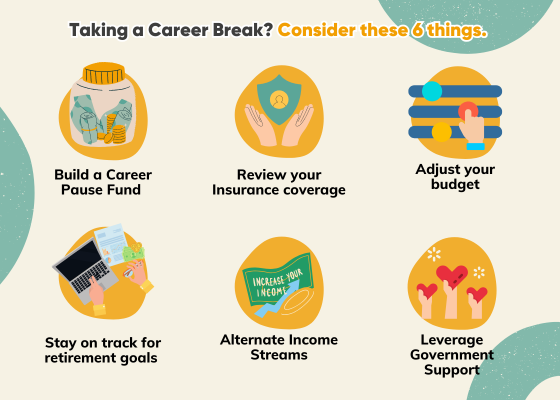You’ve just graduated from polytechnic or university and secured your first job. When that first salary hits your bank account, it’s exciting but also kind of scary.
That’s because it’s a sign that this “adulting” thing is actually real. Figuring out what to do with your money, now that you’re making your own, can be daunting. But it doesn’t have to be.
If we establish some solid foundations on which to build healthy financial habits, similar to best practices when eating or staying active, then we’ll reap the benefits of it far into the future.
So, for young people just starting out in their working life – or even those of us who have been working for a few years – here are five top tips that can help us accelerate our personal finance gains.
1. Pay yourself first
No, this doesn’t refer to going out and spending money on the cool restaurant experiences and travel abroad. You can do those things, of course, but only after “paying yourself first”.
And with this, it means automating your approach to setting aside some money to save and help you build up your total wealth.
It’s great practice to, for example, set up a standing instruction or automated debit order. This allows you to put aside a certain amount of money towards these goals right after your salary is in your account. Starting off, it would be advisable to aim to “pay yourself” 10-20% of your take-home (so after CPF and tax) pay.
By building up that practice and ensuring you are working towards your goals, the rest of the money can go towards your basic expenses and discretionary spending.
Don’t get too hung if you can’t meet that 20% figure straight away. It could be more reasonable and realistic to aim for 10-15% to start off with and build up towards that 20% (or even 25%!) figure once you’ve got the hang of it.
2. Have a 6-month emergency cash fund
When you have started and maintained a savings habit, you can slowly but surely work towards a 6 months emergency cash fund.
The Covid-19 pandemic – which was not too long ago – and the wave of layoffs in the news, highlight the importance of having an emergency fund of about 6 months worth of expenses.
Having this allows you to be able to meet any obligations you may have were you to lose your job or suddenly have a medical emergency you need to cover.
3. Buy insurance protection
Speaking on medical emergencies, while it may not seem like an immediate priority, getting insurance is a key part of any financial wellness plan. This is because it is a safety net that protects you financially from catastrophic life risks such as death, a serious injury, or critical illness.
While you may think you’re young and invincible, you’ll never know when things go sideways and life throws you the unexpected.
The first order of business is to figure out what type of protection you need.
In terms of health insurance, all Singaporeans will have a basic health plan that’s known as “MediShield Life”.
However, many of us will want to upgrade this to get better protection, which we can with what’s
known as “Integrated Shield Plans” or IPs.
That’s because IPs can cover certain medical conditions or treatments that the basic MediShield Life may not cover. Furthermore, other key factors (like pre & post-hospitalisation bills, waiting times, and choice of doctors) can often be better with an IP.
You can also consider getting term insurance to cover you for death, total and permanent disability, and critical illness. When you get these protection when you’re young and healthy, you pay lower premiums and have no issues with insurability.
At the end of the day, we all need some insurance for protection, and we should all have this mantra when buying insurance:
Buy only as much insurance as you need but aim to pay as little as possible in premiums.
Many insurance plans out there aim to integrate a savings or investment aspect into the insurance plan, creating a hybrid insurance product of sorts.
But insurance should primarily be for protection, as there are many other lower cost and fit-for-purpose options to grow your wealth.
4. Invest in low-cost, globally-diversified funds
Ok, so now that you’ve got your emergency fund and insurance sorted, it’s time to grow your existing savings and wealth. That’s where low-cost and globally-diversified funds come in.
We should all set some guardrails up when we take that first investing plunge into the markets. First, aim to diversify.
Why put all your hard-earned money into the stock of one company (which you might not know much about) when you can invest into thousands of companies in one go?
By spreading your investment risk across companies, as well as countries, you ensure you’re not exposed to specific market movements which could wipe out your wealth.
Second, focus on using low-cost ways to get access to global financial markets. We can’t control where markets go in the short term, but we can control the costs.
Multiple studies have shown that lower cost investment products can deliver superior returns to investors (versus the majority of funds) over the long term.
The best place to start looking for individuals is exchange-traded funds (ETFs). These can be for either stocks or bonds and can hold hundreds, if not thousands, of stocks/bonds in just one simple investment.
Other fund types (like unit trusts) can also serve a purpose for those of us looking to grow wealth.
Generally, we should invest 80% to 90% of our portfolio in “core” assets like global stocks and bonds. The final 10% to 20% could be allocated to more speculative or alternative investments, including Bitcoin, other cryptos, gold, commodities, and even luxury watches. Be prepared to lose all of the 10 – 20%, and never leverage to invest.
One important factor to remember is that building wealth is a process and it isn’t always smooth. In that vein, we shouldn’t deviate from our plans (i.e. sell our investments!) just because the markets fall or are volatile.
The whole point of financial markets are that they are volatile on a day-to-day basis but on a decade-to-decade basis they go up.
Ignoring the noise that is out there and staying invested is the key to long-term investing success.
5. Avoid financial stumbling blocks
Finally, when we start our wealth-building process we should be aware of avoiding anything that could interrupt this process.
What can interrupt it? A number of things. One of the biggest is a dependence on debt or credit card debt as the interest rates payable on these can be astronomical and will more than offset any gains you will make from your investing.
Furthermore, schemes like “Buy Now Pay Later” (or BNPL) help with purchases but they can also be a slippery slope where you easily spend beyond your means.
That can quickly result in finding yourself owing an increasing amount of repayments that may be hard to meet.
By focusing on being fiscally responsible with your spending and, most importantly, monthly cash flow, you can better prepare yourself for the long-term process of growing your wealth.
Start playing the long game with your money
By having a robust base off which to build financial wellness, we give ourselves a much better chance of success.
With these five top tips young individuals can get started on the right foot. While money certainly doesn’t buy us happiness, it does give us the freedom to make more choices in our life.
By helping ourselves build wealth over the long term, we are helping not only us (but our future spouses and potentially kids) to have much more freedom of choice in our lives.
That can only be a good thing but it requires us to take action today.
Disclaimer:
While every reasonable care is taken to ensure the accuracy of information provided, no responsibility can be accepted for any loss or inconvenience caused by any error or omission. The information and opinions expressed herein are made in good faith and are based on sources believed to be reliable but no representation or warranty, express or implied, is made as to their accuracy, completeness or correctness. The author and publisher shall have no liability for any loss or expense whatsoever relating to investment decisions made by the reader.




